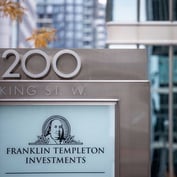What You Need to Know
- James Arthur McDonald Jr. allegedly lost millions of dollars of client funds in risky trading and misappropriated millions more.
- He failed to testify before the SEC, closed phone and email accounts and told someone he planned to vanish, according to the DOJ.
A former advisor who served as a frequent guest analyst on CNBC financial TV news shows who is believed by investigators to be in hiding was charged Wednesday with securities fraud on complaints that he lost tens of millions of dollars of clients’ investments and misused money from a purported capital raise.
Separate actions were filed in U.S. District Court for the Central District of California by the Justice Department and the Securities and Exchange Commission.
The Justice Department charged James Arthur McDonald Jr., 50, formerly of Arcadia, California, with one count of securities fraud, a crime punishable by up to 20 years in federal prison, it said.
McDonald ran two Los Angeles County-based investment companies: Hercules Investments, based in downtown Los Angeles, and Index Strategy Advisors (ISA), based in Redondo Beach, serving as the CEO and chief investment officer of each firm, the Justice Department noted.
According to an affidavit by Robert Chowthi, a special agent with the Federal Bureau of Investigation, that was filed with the Justice Department’s complaint, McDonald “lost tens of millions of dollars of Hercules investor funds after adopting a risky short position that effectively bet against the health of the U.S. economy in the wake of the 2020 presidential election.”
McDonald predicted that the COVID-19 pandemic and election would result in major selloffs that would cause the stock market to tumble, according to the Justice Department. When that result failed to materialize, Hercules clients lost between $30 million and $40 million, according to the affidavit.
By December 2020, Hercules clients were complaining to that firm’s employees about the losses in their accounts, according to the Justice Department.
In early 2021, McDonald “solicited further funds from investors in the form of a purported capital raise” for Hercules, according to Chowthi.
“In doing so, he misrepresented how the funds would be used and failed to disclose the massive losses Hercules had previously sustained,” Chowthi alleged.
As an example, Chowthi noted that, in connection with the Hercules capital raise, McDonald obtained $675,000 in investment funds from one victim group on March 9, 2021. McDonald then “misappropriated those funds in various ways, including spending roughly $174,610 of them at a Porsche dealership,” according to Chowthi.
About $109,512, meanwhile, was transferred to the landlord of a home McDonald was renting in Arcadia and about $6,800 was spent on a website selling designer menswear, according to the Justice Department.
The FBI’s investigation also revealed McDonald’s “fraudulent capital raise is part of a broader pattern of deceptive conduct, which includes the creation of false account statements for ISA clients, his ongoing misrepresentation to clients that ISA was a registered investment adviser even after he had terminated its registration, and even misleading statements about his educational background,” Chowthi alleged.
McDonald also allegedly falsely represented to clients that ISA was a registered investment advisor even though he had withdrawn ISA as a state-registered advisory firm in May 2019, the Justice Department said.









 September 22, 2022 at 02:15 PM
September 22, 2022 at 02:15 PM











